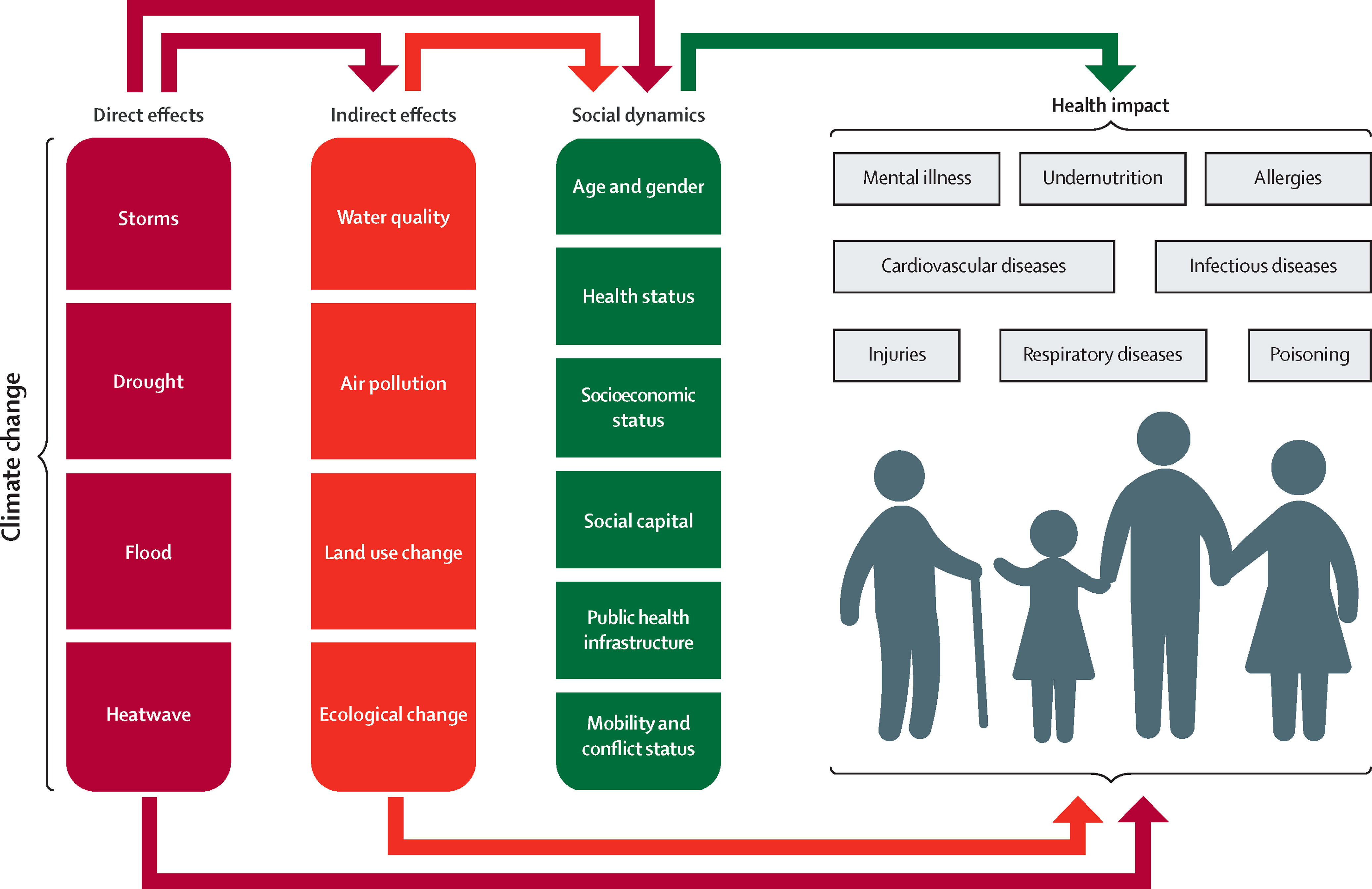A major new Commission published in
prestigious British medical journal The Lancet has found that climate change is a “medical emergency”
with threats to human health so great that it could reverse the last 50 years
of gains in development and global health.
According to the report, the direct health
effects of climate change come from the increasing frequency and intensity of
extreme weather events such heat waves, floods, droughts and storms. Indirect health impacts come from changes in the spread of disease, air pollution, food insecurity and malnutrition,
involuntary migration, displacement and conflicts.

However, the study also found that while the
“unacceptably high and potentially catastrophic” human health risks posed by
climate change have been underestimated, global
efforts to tackle climate change represent one of the greatest opportunities to
improve global health this century.
The report found that climate change action
can bring immediate health gains – such as reduced respiratory diseases from
burning fewer fossil fuels; reduced pollution, road traffic accidents, obesity,
diabetes, coronary heart disease and stroke from increased walking and cycling;
as well as an improved diet which could arise from eating less red meat.
The Commission concludes that while the
technology and finances required to tackle the health risks posed by climate
change are available, global political will to implement them is lacking, and
an emergency international response is required.
You
can access the full report from The Lancet here.